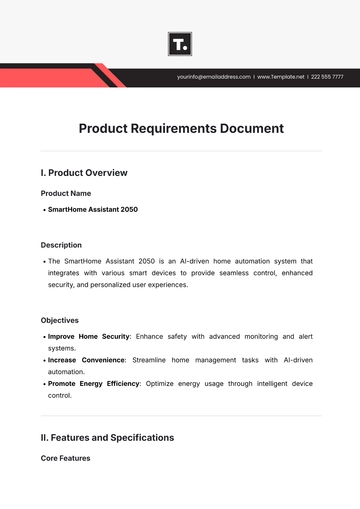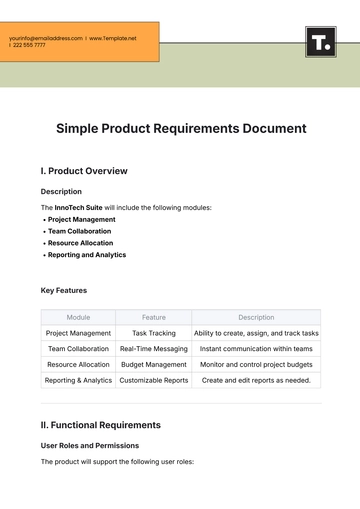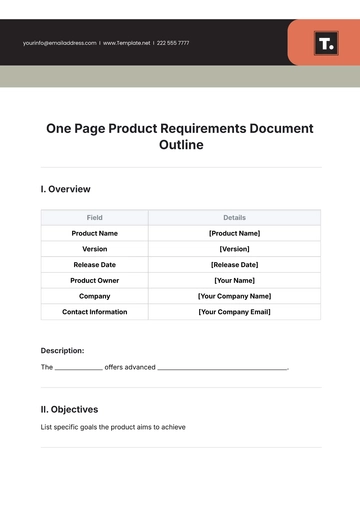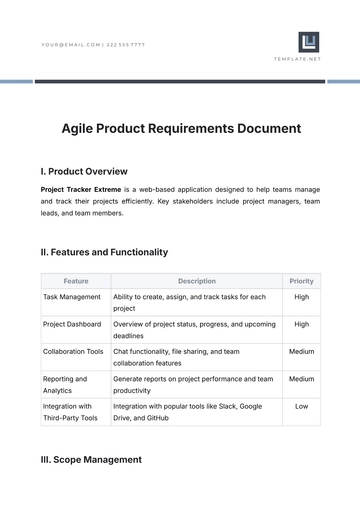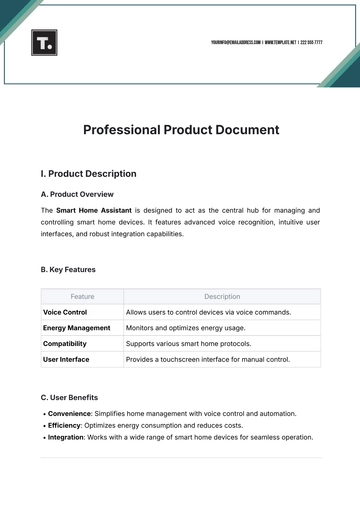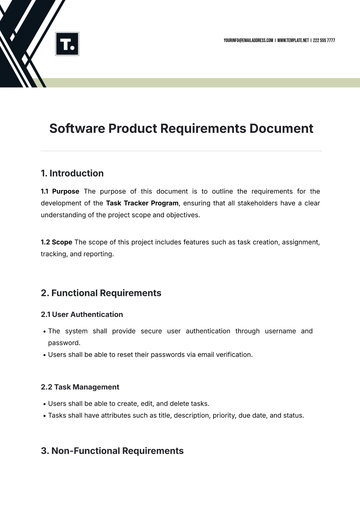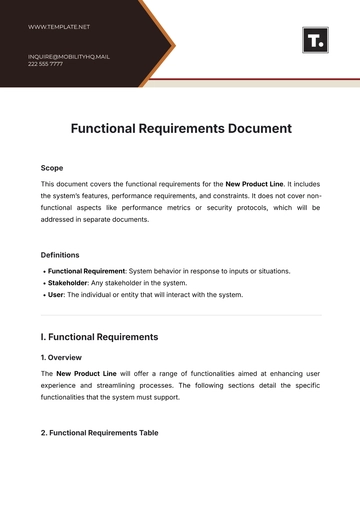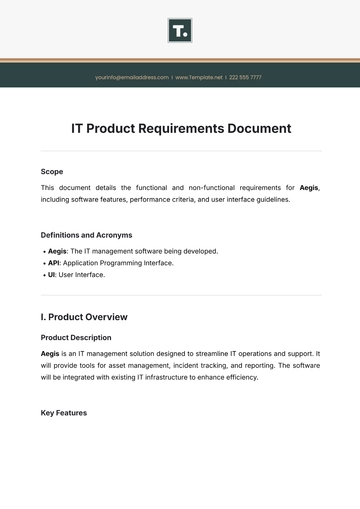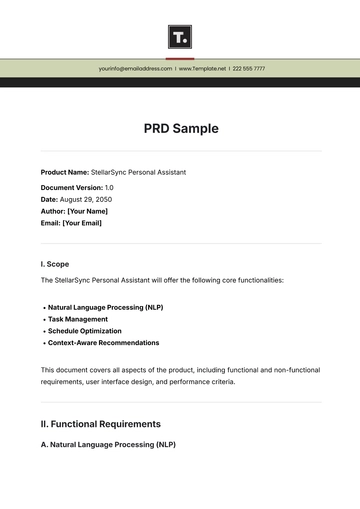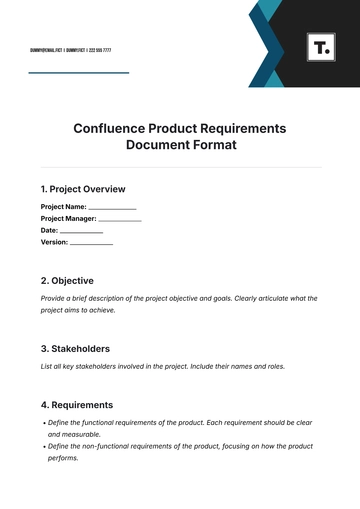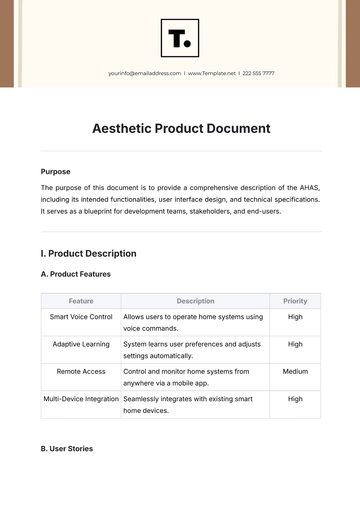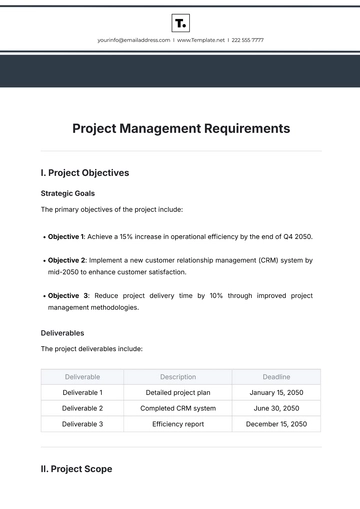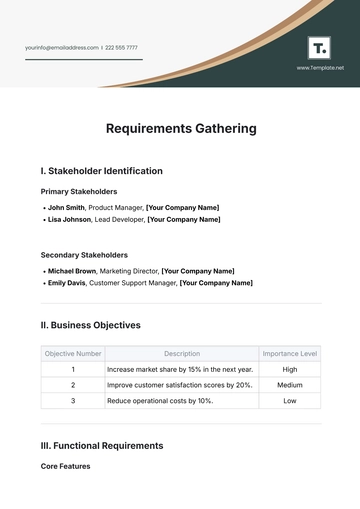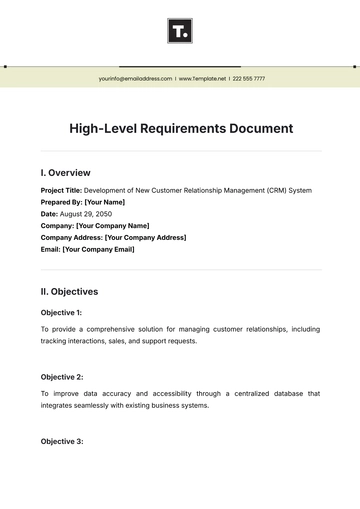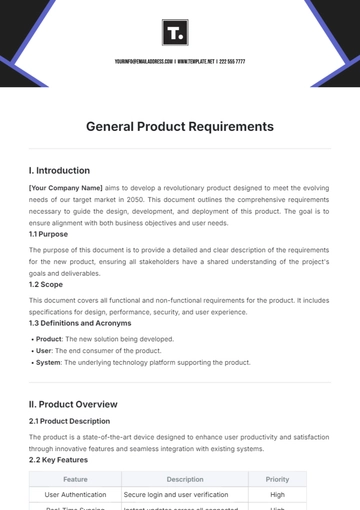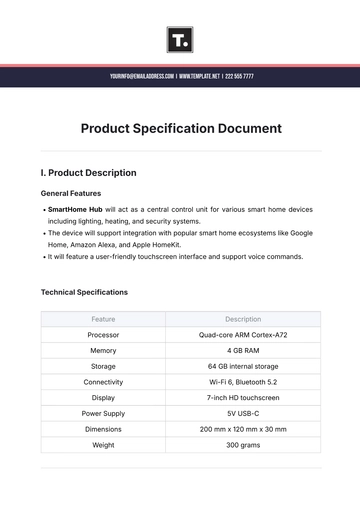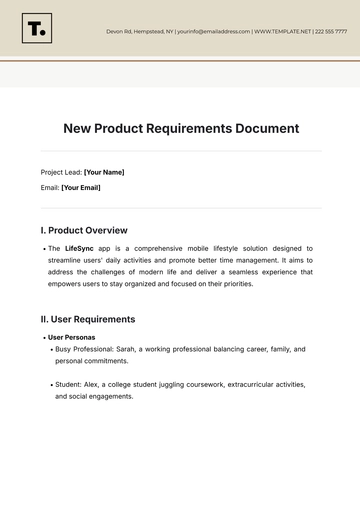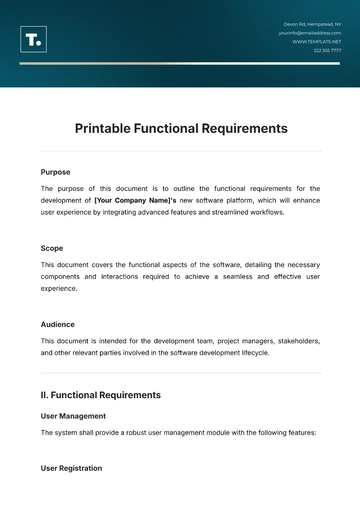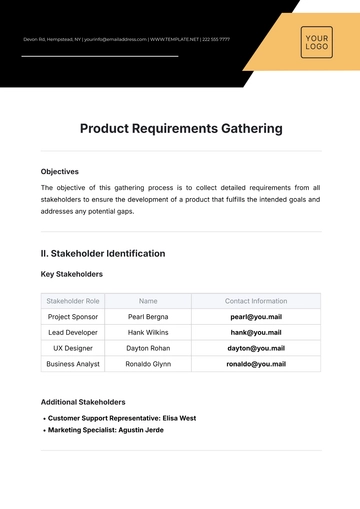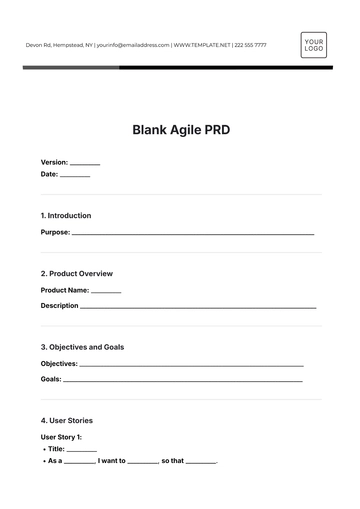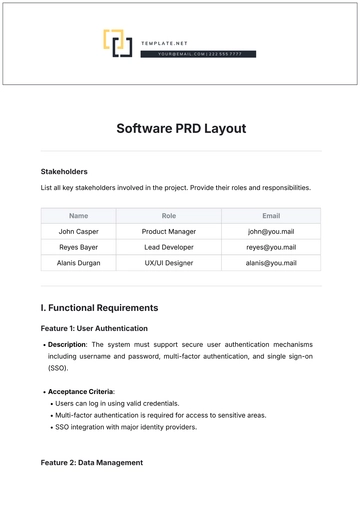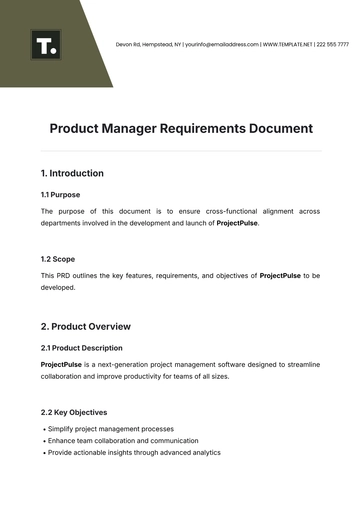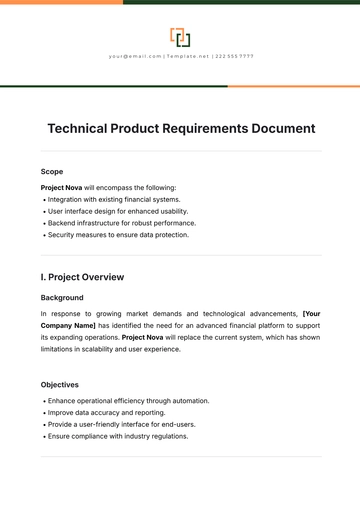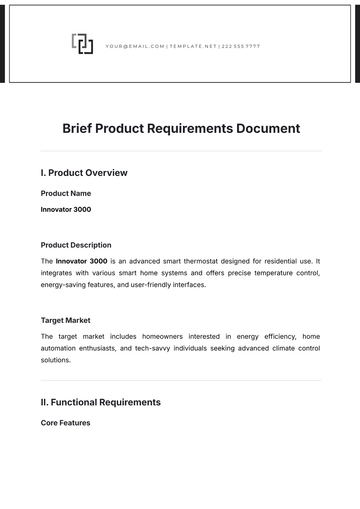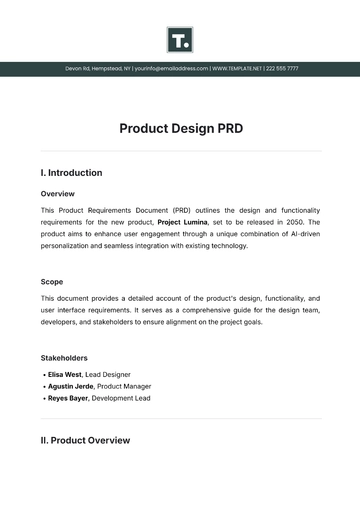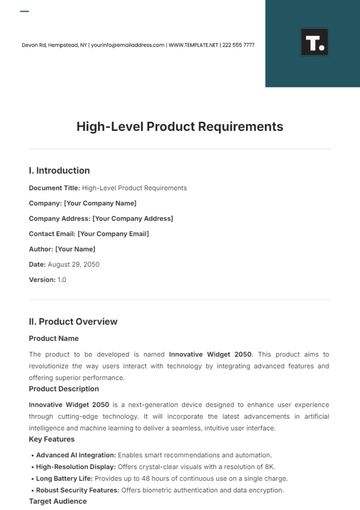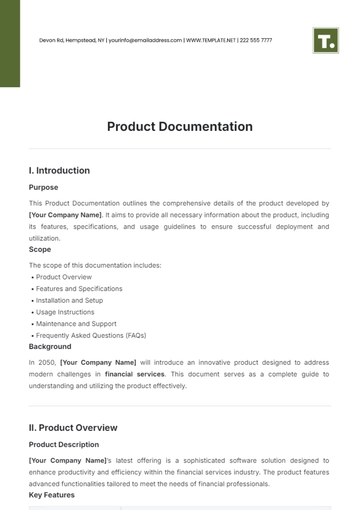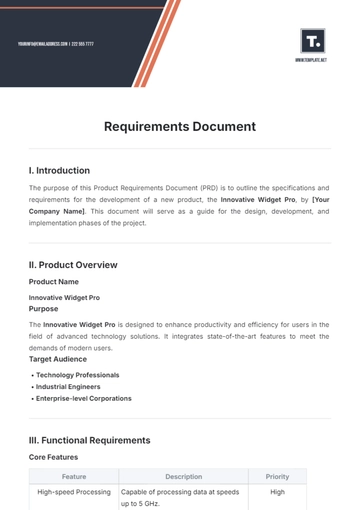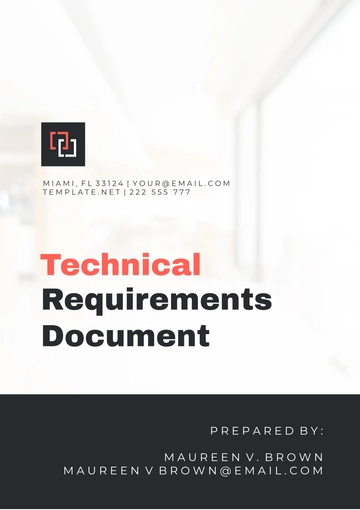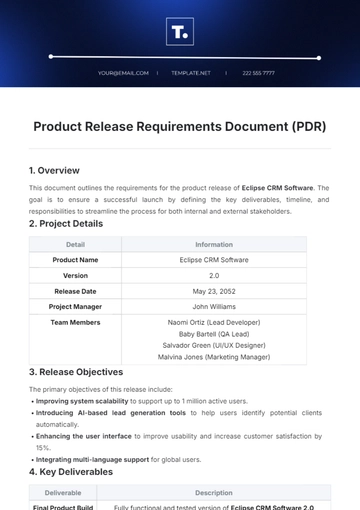Free Product Requirements Document for Startups
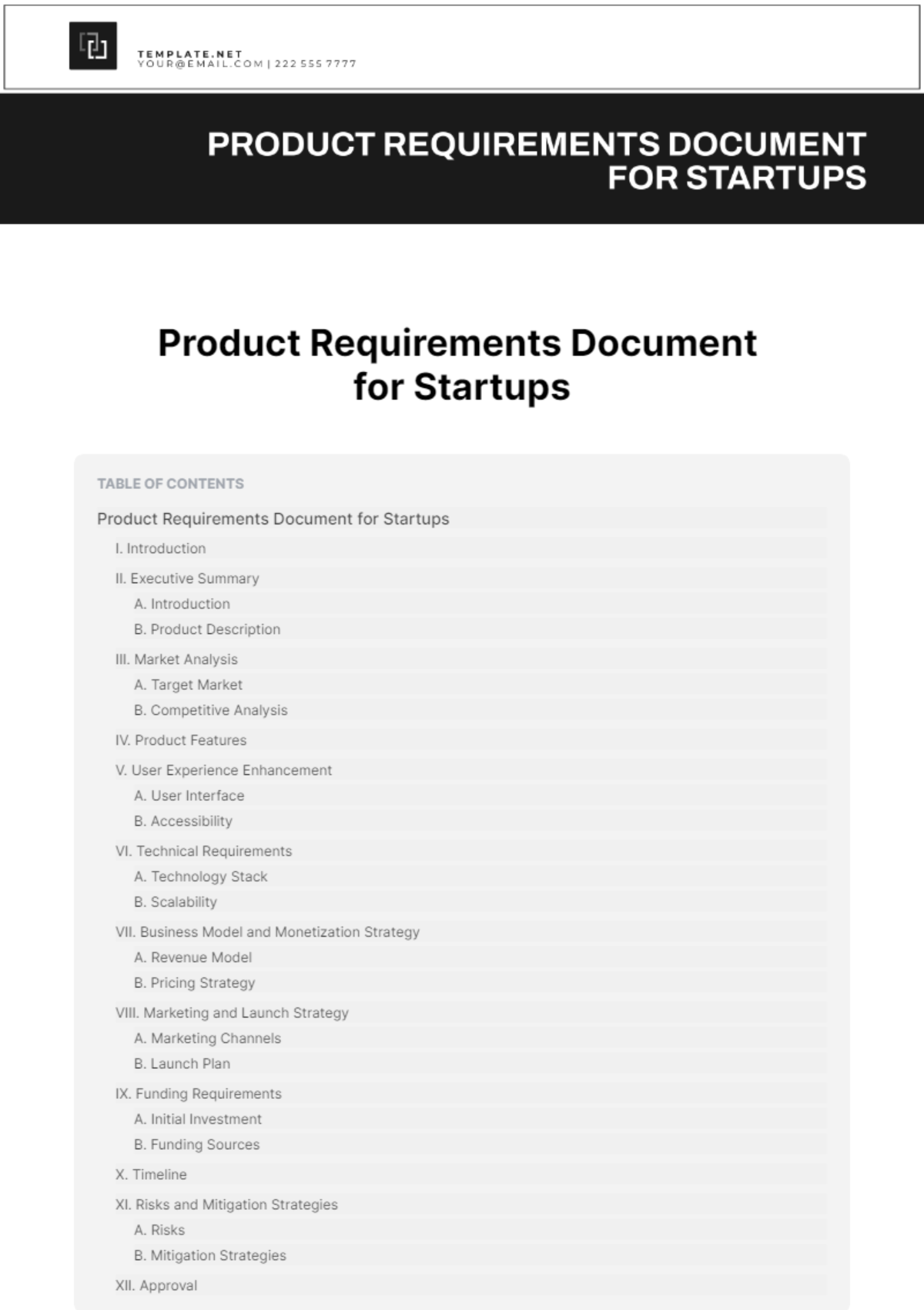
for Startups
I. Introduction
This Product Requirements Document for Startups delineates the essential features and market requirements for the development of [PRODUCT NAME]. This document serves as a roadmap for startup ventures to align their product development with customer needs and business goals.
II. Executive Summary
A. Introduction
[YOUR COMPANY NAME] aims to disrupt the grocery shopping experience with [PRODUCT NAME] - a mobile application that enables users to order groceries online for quick delivery.
B. Product Description
[PRODUCT NAME] streamlines the grocery shopping process by offering a seamless ordering experience and fast delivery service.
III. Market Analysis
A. Target Market
[PRODUCT NAME] targets urban professionals seeking convenience and time-saving solutions in grocery shopping.
B. Competitive Analysis
[COMPETITOR B NAME]: Dominates market share with a wide selection of products and efficient delivery.
[COMPETITOR A NAME]: Known for its user-friendly interface and competitive pricing strategy.
IV. Product Features
Feature | Description |
|---|---|
Ordering | Intuitive interface for easy selection and checkout. |
Delivery Tracking | Real-time tracking of order status with SMS notifications. |
Recipe Suggestions | Personalized recipe recommendations based on purchased items. |
Weekly Meal Planning | Automated meal planning feature for added convenience. |
V. User Experience Enhancement
A. User Interface
[PRODUCT NAME] prioritizes a clean and user-friendly interface with seamless navigation and clear call-to-action buttons.
B. Accessibility
Comprehensive accessibility features ensuring inclusivity for users with disabilities, including screen reader compatibility and adjustable font sizes.
VI. Technical Requirements
A. Technology Stack
React Native for cross-platform app development.
AWS for scalable cloud infrastructure.
B. Scalability
Ability to accommodate rapid user growth and increased demand during peak hours through cloud-based scaling mechanisms.
VII. Business Model and Monetization Strategy
A. Revenue Model
[PRODUCT NAME] generates revenue through commission fees from partner grocery stores for each successful transaction.
B. Pricing Strategy
Flexible pricing tiers based on delivery speed options and order size, offering users choice and value.
VIII. Marketing and Launch Strategy
A. Marketing Channels
Utilization of social media platforms for targeted advertising, influencer partnerships, and email marketing campaigns.
B. Launch Plan
Strategic soft launch in select cities to gather user feedback and refine the product before a full-scale rollout.
IX. Funding Requirements
A. Initial Investment
An initial investment of $1 million is required to cover development costs, marketing expenses, and operational overheads.
B. Funding Sources
Seeking funding from angel investors, venture capital firms, and potential strategic partners.
X. Timeline
Development Phase: 6 months
Launch Phase: 3 months
XI. Risks and Mitigation Strategies
A. Risks
Risk of market saturation and intense competition from established players.
B. Mitigation Strategies
Continuous market analysis, agile development practices, and strategic partnerships to stay ahead of market trends and mitigate risks.
XII. Approval
This Product Requirements Document for Startups is approved by:

[CEO's Name]
[Date]
- 100% Customizable, free editor
- Access 1 Million+ Templates, photo’s & graphics
- Download or share as a template
- Click and replace photos, graphics, text, backgrounds
- Resize, crop, AI write & more
- Access advanced editor
Launch your startup journey with confidence using our Product Requirements Document for Startups Template, brought to you by Template.net. This comprehensive template is tailored to meet the unique needs of startups, providing a clear roadmap for success. Download and print with ease, ensuring alignment and clarity in your project vision. Editable in our AI Editor Tool, it adapts to your evolving startup needs, empowering you to drive innovation and growth.
